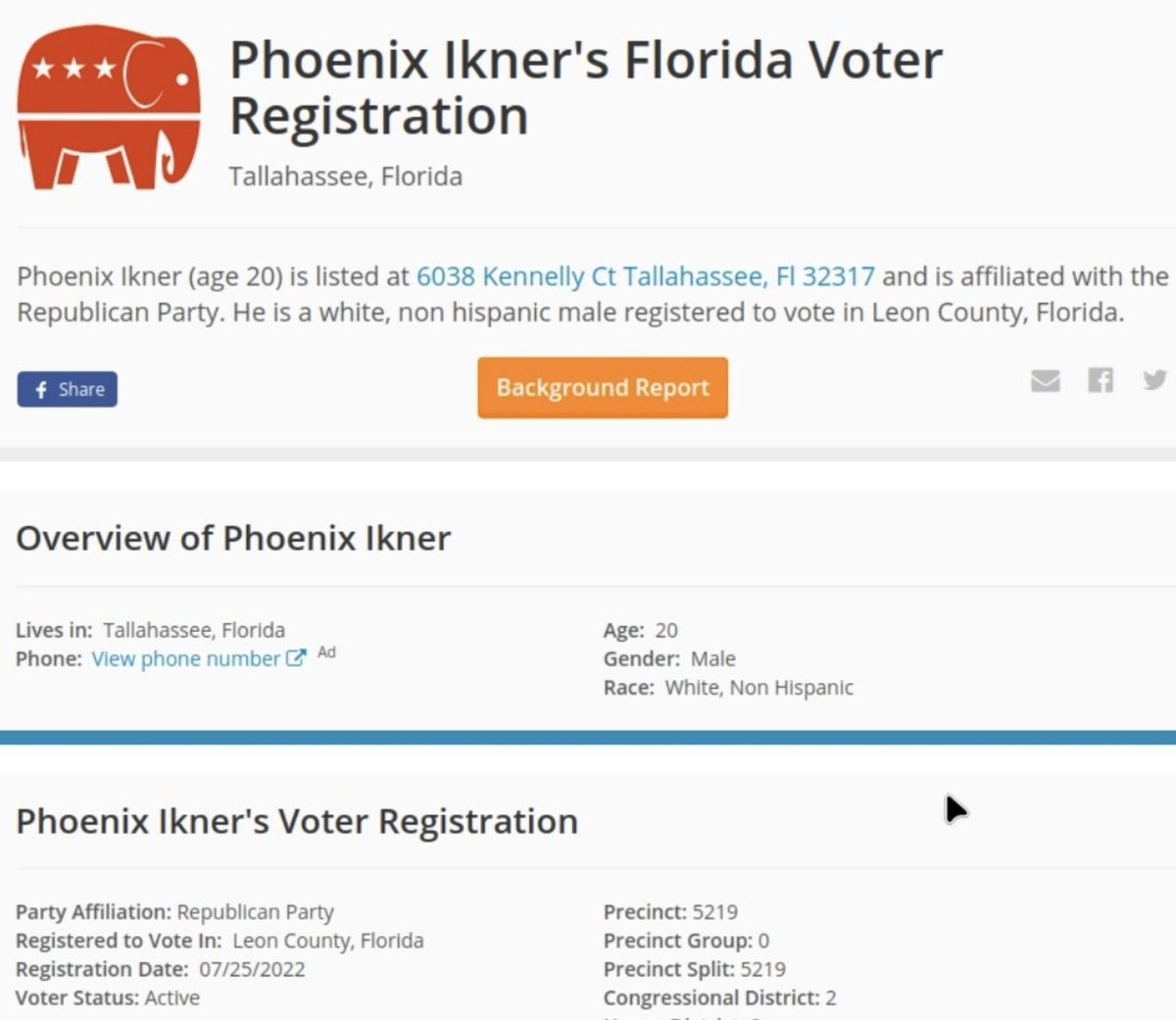Weakening relations and tariffs have chilled relations between Canada and the U.S. Now, some Canadians are skipping the U.S.

www.yahoo.com
Americans Reveal the Brutal Impact of Canadian Snowbirds Boycotting the U.S. Amid Trump’s Tariff War: ‘It’s a Challenging Period’
Joy Dumandan and Julie Gerstein
Thu, April 17, 2025 at 11:30 AM EDT
9 min read
Americans Reveal the Brutal Impact of Canadian Snowbirds Boycotting the U.S. Amid Trump's Tariff War: 'It's a Challenging Period'
Americans who live in communities that have long played host to an influx
of Canadian snowbirds during the winter months are laying bare the devastating impact the visitors’ boycott of the U.S. is having on their local economies.
For years, large groups of travelers from
Canada have ventured over the border and into the U.S. in search of relief from the bitter winter weather in their home country. Many of them rent homes in places like
Florida or
Arizona for months at a time, while others have gone even further, snapping up a vacation properties that serve as main dwellings for half of the year.
But after
President Donald Trump implemented
sweeping new tariffs on a number of trade partner nations, those Canadian snowbirds began flocking away from the U.S., instead seeking out sunshine in places like Mexico—a move that has dealt a serious economic blow to the American towns and communities they once traveled to.
Blaine, WA, a tiny town that is located near the U.S./Canadian border, is one such area.
Known as Blaine by the Sea, the town was originally used as a seaport and was known for fishing, logging, and canning. However, in more recent years, it has been used as a gateway for people traveling to and from British Columbia into the U.S., helping to provide a steady stream of tourism revenue.
Now, that stream is drying up—and fast—according to locals.
“Political uncertainty has significantly impacted my business,” explains
Martha Bermudez, owner of
Bella Boutique & Consignment. She tells
Realtor.com® she’s noticed a drop in both Canadian customers and local shoppers.
Blaine, WA, has two border crossings with Canada.
(Whatcom County Real Estate / YouTube)
“The situation has created a sense of caution in our community. As for tariffs, they’ve definitely contributed to the decline,” says Bermudez. “It began when the Canadian dollar weakened—some Canadian customers pulled back then—but the added burden of tariffs has only made it worse.”
Bermudez opened her Blaine store in in February 2024, after finding success with her first location in Ferndale, but now she’s trying to navigate the uncertainty.
“Sales are down about 50%. It’s been one of the most challenging periods since opening,” says Bermudez. “With the significant drop in sales, we’ve had to make some tough decisions. We’ve cut back on restocking for upcoming seasons, reduced operational costs wherever possible, and even paused outside services like weekly cleaning to help us cover rent and bills. We’re trying to stretch every dollar while still maintaining a welcoming space.”
She also describes how she’s heard from Canadian customers who are uncomfortable sharing with their friends that they’ve crossed the border into the U.S. because of the negative reaction, adding: “Some have told me directly that they’re selling their U.S. properties and won’t be returning.”
And this scenario is not just isolated to Blaine. Farther south, local leaders in
Phoenix, are working to let Canadians know they’re still welcome.
“Our state relies heavily on tourism,”
Mike Huckins, senior vice president of public affairs and IT operations with the Greater Phoenix Chamber of Commerce, tells Realtor.com. “Our tourism industry will likely be impacted by everything from hotels, golf courses, shopping, restaurants, and other entertainment venues.”
Canadian snowbirds add an estimated $1.4 billion to Arizona’s economy each year, with about 100,000 Canadian tourists traveling each winter, according to the Canada Arizona Business Council.
“Canada is the second-largest source of international visitors to Arizona, behind Mexico,” says Huckins.
Martha Bermudez owns a boutique in Blaine, WA, and says business has been down since the tariff war.
(Bella Boutique & Consignment / Facebook)
According to
Alexandra DuPont, a real estate agent with DuPont International Realty in
Pompano Beach, FL, a number of her Canadian clients are now seeking properties in Mexico out of fear about the reception they might receive in the U.S.
“They’re worried. There are a lot of question marks,” she says. “Many of them are looking instead at Mexico.”
As they opt to take their business to Mexico and South America, some Canadians who own property in the U.S. are now looking to sell.
“Typically, in high season, I would have 10 to 15 listings, maybe 10 to 12 on a good season,” says DuPont, noting that most of her sellers are Canadian condo owners. “Right now, including rentals and everything, I’m up to 37.”
Now that the winter season is over, many of her clients are adopting a wait-and-see attitude about whether they’ll return.
“I have had clients or even friends of my parents who live in Montreal tell me that they’re going to look into renting something in Mexico,” DuPont adds. “They just want to stay away from the U.S. in general.”
Meanwhile, she says, that’s turned Pompano Beach into a buyer’s market.
Buyers, she says, are “lowballing. They know, especially in the condo market, they have a lot of leverage. So they’re telling me, ‘Listen, there’s 80 other condos in the community, we’re trying to do multiple offers and find the best deal.’ So they’re definitely negotiating.”
A $6 billion housing market
Canadians have long chosen the sun and fun of the American South as their preferred place to winter and retire. Last year alone, Canadians spent nearly $6 billion on U.S. real estate, according to the
National Association of Realtors (NAR).
Not surprisingly, Canadian buyers prefer warmer states like Arizona and
California, but they especially love Florida: Around 41% of Canadians who purchased homes in the U.S. in the last year bought property in the state, according to the NAR.
These days, though, many of those homeowners say they’re turned off by the souring relationship between the U.S. and Canada and would rather not spend their money in a country they perceive as increasingly hostile toward their own.
Trump first began ratcheting tensions between Canada and the U.S. in December,
referring to Canada as the 51st state and then-Prime Minister Justin Trudeau as Canada’s governor. In early January, he said he would use
“economic force” to hobble Canada’s economy. By March, Trump had levied a
25% tariff on Canadian goods—everything from car parts to lumber and liquor.
Many Canadians had already begun to put “for sale” signs on their U.S. properties, rattled by rising tensions and new policies requiring them to register with U.S. authorities if they planned to stay there for longer than 30 days. But they’ve also been impacted by a plummeting exchange rate and
soaring insurance costs.
Communities in Florida that traditionally play host to thousands of Canadians during the winter months, like Pompano Beach and St. Petersburg, say those tourists are now flocking elsewhere.
Canadians are pulling out of the U.S. vacation market, too
“Not only have Canadians been electing to divest from their vacation homes and investment properties in Florida, they have also been canceling their trips to the area, which is having a negative impact on our vacation rental market,”
Robert Washington, of Savvy Buyers Realty in
St. Petersburg, FL, previously told Realtor.com.
Aviation data firm OAG reports that bookings from Canada to the U.S. from April to September are down
70% year over year.
A recent survey of 1,153 Canadians from market research firm Leger found that nearly half planned to
reduce travel to the U.S. in 2025.
The reduction in Canadian visitors to the U.S. could have a catastrophic impact on the U.S. economy, the
U.S. Travel Association warned in February. In 2024, Canadian visitors generated $20.5 billion in spending and helped support around 140,000 jobs. A 10% reduction in Canadian tourists could lead to 14,000 job losses and a decrease of around $2.1 billion in spending.
Canadians say they’ve faced harassment from U.S. neighbors
It’s not simply that Canadians are bristling at the anti-Canadian sentiment from the Trump administration; some say they’re also experiencing it on the ground.
Ross Reinhardt and his wife,
Betti, are from Manitoba, Canada, and have a home in
Mesa, AZ.
“We’ve travelled back and forth, and freely. There’s never been any grief, and here we are now made to feel so uncomfortable that we have to pick up and go,” Ross told the
CBC. “It’s nothing physical … but usually sharp comments, [like] ‘it’s time for you to leave’ or ‘you can go anytime you want,’ ‘north is your way home,'” he continued.
DuPont says something similar happened to one of her clients who was overheard speaking French in public.
“I think a lot of Canadians want to stay loyal to their country,” she continues. “And unfortunately, a lot of Canadians right now are boycotting a lot of liquor, goods, and products that are made in the US. So they feel guilt, I guess, telling their friends and family that they are coming down to Floria. They feel like they’re betraying their people.”
At the northern border crossing in
Champlain, NY, there has also been a drop in tourism.
The Champlain border crossing is down 31% for March, according to the North Country Chamber of Commerce, compared to 16% in February.
“We also cannot define the relative degree to which three factors are all affecting cross-border travel,” says
Garry Douglas, president of the North Country Chamber of Commerce. “But it is a combination of a poor exchange rate for Canadians, a broad sense of hurt among Canadians, and the 25% surcharge imposed by Canada at the border as part of retaliatory tariffs.”
Adds Bermudez: “This is unlike anything I’ve experienced before. The ongoing political climate and border-related issues made us realize just how much we rely on our Canadian customer base.
“I truly hope this turns around soon, and when that time comes, we’ll be here with open doors to welcome everyone back.”






























